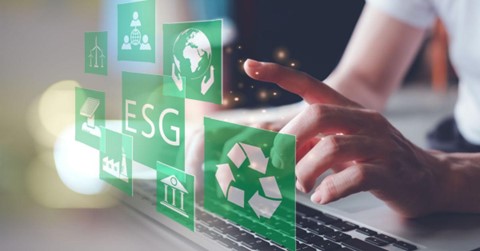
Explore how sustainable procurement balances economic performance with environmental and social responsibility and discover its role in driving growth, reducing emissions, and building resilient, ethical supply chains.
Sustainable procurement represents a strategic approach to purchasing that balances economic performance with social and environmental responsibility.
Going beyond simple cost efficiency, this practice requires businesses to ensure that the goods and services acquired are ethically sourced, environmentally friendly, and socially inclusive.
The Economic Importance of Sustainable Procurement
Sustainable procurement can act as a powerful catalyst for economic transformation, capable of integrating sustainability criteria into procurement decisions, thus enabling organizations to unlock a range of economic benefits that extend beyond cost savings.
Promoting Economic Growth
Sustainable procurement fosters innovation and growth within green and circular industries by prioritizing suppliers that adhere to sustainability standards, stimulating demand for low-impact products, which in turn supports the development of new markets and creates employment opportunities, especially in sectors aligned with the green transition.
Supporting the Local Economy
Local sourcing is a key principle of sustainable procurement, reducing dependency on complex global supply chains while bolstering regional economies.
Procuring from local suppliers supports small and medium-sized enterprises (SMEs), contributes to community development, and minimizes emissions associated with long-distance logistics.
Fair Trade and Ethical Sourcing
By giving preference to suppliers who follow ethical production practices, such as those certified by Fairtrade International, can address global inequalities.
These initiatives ensure that producers in developing countries are paid fairly, work in safe conditions, and are empowered to participate in sustainable development.
Reducing Operational Costs and Risk Exposure
Sustainable procurement leads to greater resource efficiency, reduced waste, and energy savings resulting in lower operational costs.
Moreover, by mitigating environmental and social risks in the supply chain, companies become more resilient to disruptions stemming from regulatory shifts, resource scarcity, or reputational damage.
Environmental Impact of Sustainable Procurement
Environmental considerations lie at the core of sustainable procurement.
By evaluating the environmental performance of products, services, and suppliers, organizations can substantially lower their ecological footprint.
Reducing the Carbon Footprint in the Supply Chain
Procurement decisions directly influence an organization’s Scope 3 emissions, those generated throughout the value chain, which accounts for roughly 80% of business emissions.
Sustainable procurement minimizes these emissions by prioritizing low-carbon alternatives, promoting green logistics, and selecting energy-efficient products.
Organizations are increasingly required to report on their full emission profile, making carbon-aware procurement not only a voluntary best practice but a compliance necessity.
Resource Efficiency and Waste Reduction
Sustainable procurement encourages the use of goods and services designed for minimal environmental impact.
This includes promoting eco-design, reducing packaging, and prioritizing recycled or renewable materials.
Such choices decrease the consumption of raw materials and help transition from linear to circular economic models, where waste is seen as a resource.
Challenges and Opportunities in Sustainable Procurement
Despite its benefits, the widespread adoption of sustainable procurement practices faces significant hurdles.
Yet, these challenges also present opportunities for innovation and collaboration.
Barriers to Large-Scale Implementation
Key obstacles include lack of awareness, higher upfront costs of sustainable alternatives, and limited availability of reliable sustainability data.
Additionally, many procurement professionals require specialized training to integrate sustainability criteria effectively into procurement decisions.
Water Scarcity and Pollution Concerns
Water-intensive production processes and pollution from industrial discharges pose a critical challenge.
Sustainable procurement must consider the water footprint of products and suppliers, especially in water-stressed regions, to prevent further degradation of aquatic ecosystems and ensure long-term resource availability.
Social and Labour Issues in Supply Chains
Labour exploitation, unsafe working conditions, and wage disparities remain widespread in global supply chains.
Sustainable procurement policies must ensure that human rights are respected across all tiers of the supply network, through supplier audits, labour certifications, and grievance mechanisms.
Strategies to Overcome Supply Chain Inefficiencies
To realize the full potential of sustainable procurement, organizations must adopt proactive strategies aimed at reshaping their supply chains for long-term resilience and efficiency.
Implementing Renewable Energy Solutions
Organizations can reduce their environmental footprint by encouraging suppliers to adopt renewable energy sources in their operations as solar, wind, and bioenergy not only cut emissions but also insulate supply chains from fossil fuel price volatility.
Enhancing Transparency and Traceability
End-to-end supply chain visibility is essential to assess and manage sustainability risks.
Through supplier disclosure requirements, digital tools, and third-party audits, organizations can trace the origin and sustainability of raw materials, ensuring alignment with environmental and ethical standards.
Promoting Responsible Sourcing Practices
Establishing clear sourcing guidelines based on internationally recognized standards can institutionalize sustainability within procurement departments.
Encouraging long-term partnerships with responsible suppliers fosters continuous improvement and mutual accountability.
The Role of Technology in Enhancing Supply Chain Sustainability
Technological innovation plays a key role in enabling smarter, more sustainable procurement strategies.
From data-driven analytics to decentralized verification systems, the digital transformation of procurement is accelerating.
AI and Machine Learning for Supply Chain Optimization
Artificial intelligence and machine learning are reshaping supply chain management by delivering actionable insights across the procurement lifecycle.
AI-powered platforms can evaluate supplier performance in real time, anticipate demand fluctuations through dynamic forecasting models, and optimize inventory levels to minimize overproduction and reduce emissions associated with storage and transport.
These intelligent systems also streamline supplier selection processes by identifying vendors that meet sustainability and compliance criteria, ultimately supporting more ethical and environmentally conscious procurement decisions.
Moreover, AI can detect patterns of inefficiency or risk, enabling pre-emptive action and continuous improvement across supply networks.
Blockchain Technology for Better Traceability
Blockchain technology is emerging as a cornerstone of supply chain transparency, offering an immutable, decentralized ledger that ensures the authenticity and integrity of shared data.
By recording every transaction and movement of goods across the supply chain, blockchain enables stakeholders to verify the origin, handling conditions, and certification status of materials and products with unparalleled reliability.
This level of traceability is instrumental in validating sustainability claims, mitigating the risk of greenwashing, and reinforcing consumer trust.
Furthermore, blockchain can support the implementation of smart contracts and automated compliance checks, enhancing governance and facilitating real-time accountability throughout the value chain.
A strategic practice
Sustainable procurement is no longer a niche practice but a core component of responsible business strategy that, by aligning environmental, social, and economic goals, empowers organizations to reduce risks, enhance reputation, and drive systemic change.
As global expectations continue to evolve, companies that embrace sustainable procurement will not only meet regulatory demands but also gain a competitive edge in the marketplace.



